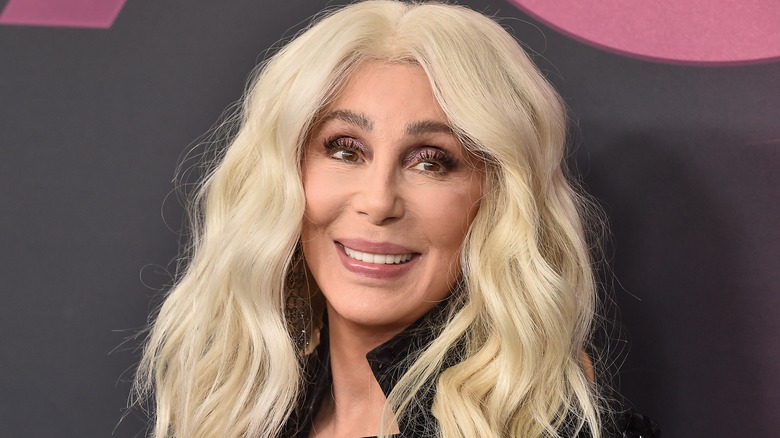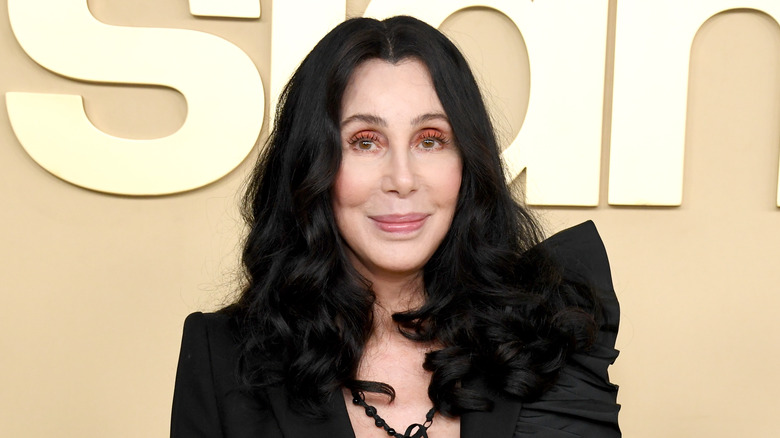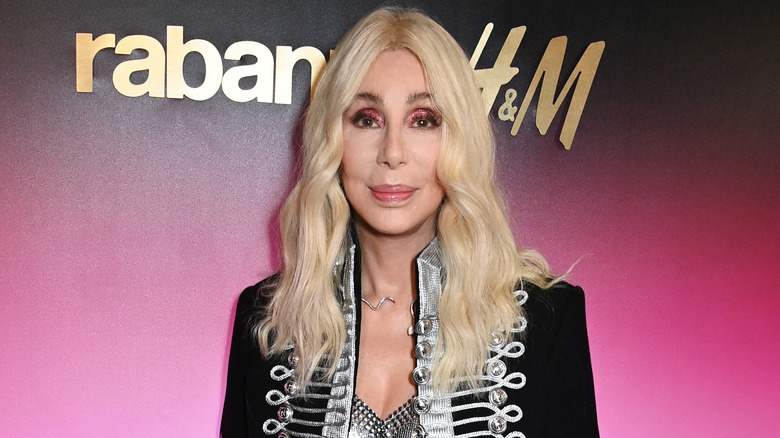Here's How Cher Missed Out On Multiple Major Money-Making Opportunities
Singer Cher has let slip a few significant opportunities for financial gain. Fortunately, some outlets have her net worth pegged at a respectable $360 million these days, so she isn't exactly struggling to make ends meet. The songstress' career blossomed in the '60s when she recorded one of her most famous songs: "I Got You Babe." Since then, Cher has ascended to icon status within the music industry. However, she's also succeeded in television, film, and business. Unfortunately, Cher's brag-worthy career couldn't ward off financial turmoil — especially when she was just starting out.
Despite Cher's career milestones, she and her then-husband and musical collaborator, Sunny Bono, weren't always in the best financial space. Cher dished about their financial failures during an interview on "The Tonight Show" in 2019. "In the beginning, what happened ... Sonny and I, we were really famous, and then our career just went off a hill," Cher said. "We had no money, we had no job, and we owed the government $278,000. ... We were broke a** broke." Their subsequent divorce caused her financial situation to worsen. "I thought I'd never climb out of that hole," Cher said during an interview with USA Today. "I had no money, and I had to pay him $2 million. It took a long time." Regrettably — that wouldn't be the last time Cher had bad luck when it came to raking in the dough.
Cher sued the owner of the LA Times
In 2017, Cher sued Patrick Soon-Shiong — the Los Angeles Times' billionaire owner — for allegedly tricking her into underselling her shares in a pharmaceutical company, according to Page Six. As alleged in Cher's filings, she sold her portion of Altor shares for $450,000 because she wasn't aware of the company's billion-dollar potential. Cher claimed that Shiong didn't disclose the fact that Altor was making strides against fighting cancer and HIV before encouraging her to sell. Soon-Shiong denied any wrongdoing. "The lawsuit has no merit," said Soon-Shiongs's spokesperson in a statement obtained by The Los Angeles Times. An anonymous source also claimed that Soon-Shiong was unaware that Cher had any interest in Altor in any capacity.
Cher pushed ahead with her lawsuit against Soon-Shiong by producing communications in the form of emails between her lawyer and one of Soon-Shiong's employees about her stock in the company. "Soon-Shiong pretended he wanted to speak with me about it," Cher told The Post (via Page Six). "Really, he just wanted to grab my shares at a discount." However, Soon-Shiong's team again denied that he was aware of Cher's financial dealings with Altor. Ultimately, Cher's case against Soon-Shiong was dismissed later that year.
Cher missed out on a massive payday for one of her hits
Expensive divorce settlements and failed investments aren't the only things that have caused Cher to lose out on money. Cher also lacked the forethought to demand a writing credit on 1998's "Believe," the mega-hit song credited with her late 90s resurgence. "You can't even imagine — about 30 people wrote on it. And I wrote and didn't even ask. I was so stupid — I didn't even ask to get a writer's credit!" Cher dropped the bombshell on BBC Radio 2's "Tracks of My Years" in December 2023. Cher also laid out her lyrical contributions on the beloved track. "I wrote, 'I've had time to think it through, and maybe I'm too good for you,'" she continued before admitting that she could've "gotten a lot of money."
Unfortunately, Cher also felt that she was owed money from her late ex-husband Sonny Bono's estate for royalties from their various hits, which were agreed on during their divorce proceedings, according to Reuters. As such, Cher filed a lawsuit against Bono's widow, former U.S. Representative Mary Bono, for failing to pay her share of the royalties. However, Bono's trust argued that The Copyright Act voided the original agreement after 35 years, thereby eliminating its duty to her. Cher sought $1 million in damages. However, Mary fought the lawsuit, claiming that The Copyright Act legally restored Sonny's rights to her and their children. The lawsuit was unsettled as of March 2023.



